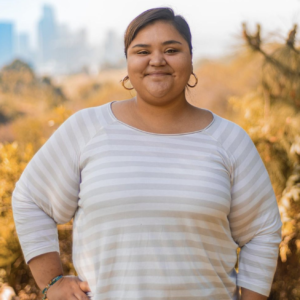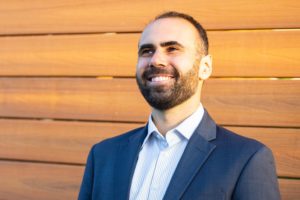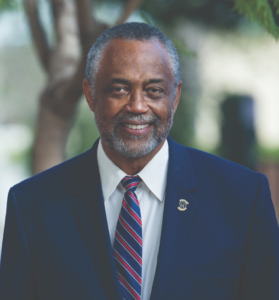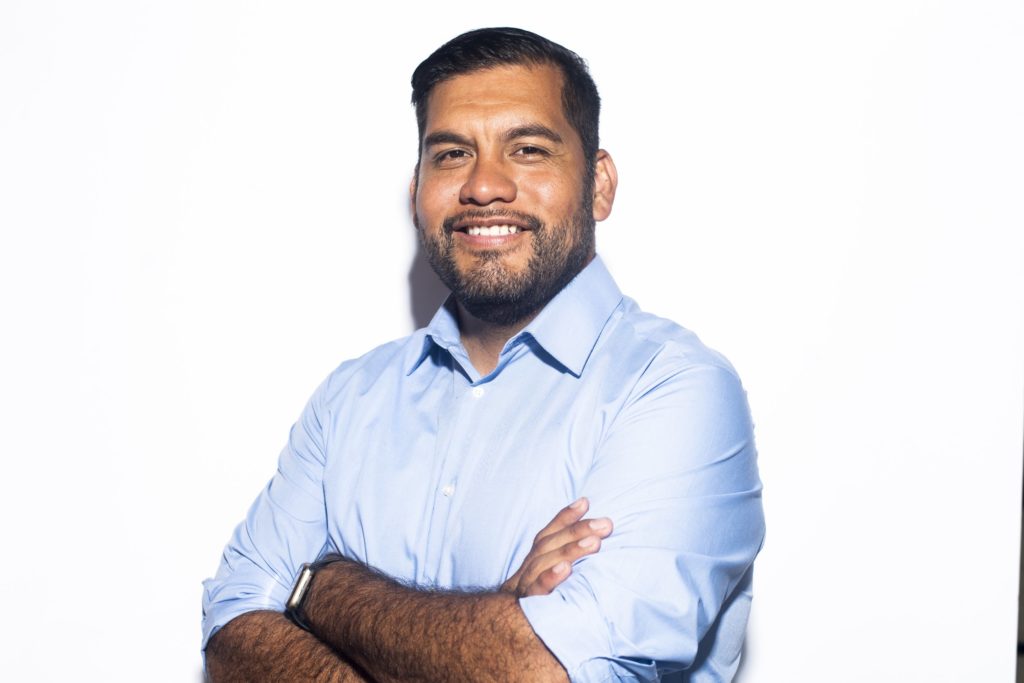The advertising blitz from a certain billionaire mall owner who wants to be mayor may make it seem like there’s only one primary campaign happening in Los Angeles right now, but while the battle to replace Eric Garcetti rages on, the real political action is in the races determining the composition of L.A.’s true power center: the City Council.
These are the people who vote on important citywide issues: ordinances, the police budget, tenant protections, etc. They’re responsible for such recent policies as the city’s 41.18 homelessness enforcement ordinance and the decision to phase out oil drilling in L.A. Eight of the city’s 15 seats are up for grabs, and three of those races have no incumbent running, which means change is on the way in some form or another. The candidates include everyone from longtime political staffers stepping into the spotlight to law professors, to community activists running on police abolition and anti-vax advocates. If we, as voters, don’t choose wisely, we might get a lineup as bad as the eight people who seriously voted to ban roommates in parts of Shawnee, Kansas.
Some of these races contain only two candidates, an incumbent and a challenger, and will be decided in the primary vote on June 7. In those with more candidates, provided no one wins an outright 50 percent majority of votes, the top two finishers will face off in a runoff election in November. If you’re not sure what district you live in, you can find out here.

CD 1: Incumbent vs. Challenger (MacArthur Park, Northeast L.A.)
Here, public policy advocate Eunisses Hernandez is hoping to unseat Gil Cedillo. Cedillo’s held the seat since 2013, and he has had a long career in public office. He’s served in both the California State Senate and Assembly, during which he pushed hard for immigrant rights, authoring the Califonria DREAM Act, and working for years to get undocumented immigrants their driver’s licenses.
Hernandez is a lifelong CD1 resident, and she’s got two big issues. She accuses Cedillo of siding with developers over residents (e.g., approving a 750-unit building in Chinatown with no affordable units). She’s also a prison and police abolitionist, while Cedillo is decidedly not in favor of abolishing or defunding the LAPD.
What does Hernandez want to do instead? Decriminalize drugs and sex work (she previously worked for the Drug Policy Alliance), assemble mental health response teams, and shut down the old and cramped Men’s Central Jail (incidentally, the L.A. County Board of Supervisors voted to do this as part of a “care first, jails last” approach in 2020, and yet… it remains open). She also promises to bolster tenant protections (including making universal “just cause” eviction protections, which are now only afforded to residents of rent-controlled housingl) and commission a report on all public-owned CD1 land where affordable housing could be built.
Both candidates tout their supposed progressive bona fides, which makes this race an intriguing indicator of where the city stands: with the old guard whose grassroots politics may have curdled after years in power, or with the new, insurgent left, whose ideals have yet to run up against the deadening inertia of council agendas and bureaucracy?
CD 3: Incumbent vs. Challenger (West and Southwest San Fernando Valley)
Incumbent Bob Blumenfield and challenger Scott Silverstein go way back — or at least to 2013, when among six candidates, Blumenfield earned 51.9 percent of the vote to Silverstein’s 4.4 percent.
Now Silverstein, owner of a real estate brokerage firm, accuses Blumenfield of moving too slowly on homelessness and of neglecting constituents. In contrast, Silverstein offers this campaign cycle’s popular refrain of more cops and no encampments. He also touts his Mental Health Over Real Estate (MORE) solution, in which private entities would buy properties and lease them to the city. The city would spend the money saved by not buying or building properties and providing mental health and addiction services.
Blumenfield, however, has played an active if contentious role in city homelessness policy. A handful of interim and Permanent Supportive Housing (PSH) projects have manifested in the district, including the Winnetka Village Apartments, two cabin communities, and Willows Bridge home. Most notably, Blumenfield co-authored the controversial 41.18 ordinance, which prohibits encampments in specific areas, such as near parks or existing shelters.
Will that record convince voters or drive them away? Will Silverstein’s obligatory nod toward protecting the Valley’s coveted single-family homes play the way it has in the past? Will this race just be a redo of Blumenfield’s 2013 TKO? Only time will tell!
CD 5: Open Seat (Westside east of the 405, Bel Air, Mid-Wilshire)
Paul Koretz has termed out and is running for City Controller. The four candidates running for his seat have some similarities. They all want a UCLA Metro station, and they’ve all placed homelessness, affordable housing, and safety at the forefront of their campaigns. They all want to shift to using mental health professionals instead of cops in various situations and advocate for more street safety interventions that would reduce the need for policing.
But it still may come down to cops and houses.
If you’d like to see more cops on the street, go with attorney, non-profit leader, and former Los Angeles Civil Service Commission member Sam Yebri, who wants to return to staffing numbers advocated under the Villaraigosa administration, or with Katy Young Yaroslavsky, an environmental attorney and senior environmental policy advisor to County Supervisor Sheila Kuehl, who supports shifting police out of office roles and into more frequent patrols.

If you’d like to see less, UCLA law professor Jimmy Biblarz would shift police response to only violent crime, and create an Office of Neighborhood Safety to coordinate unarmed responders and give residents a voice as to where resources should go. He also doesn’t think local cops need military-grade weapons. Nor does public policy analyst Scott Epstein, who wants to take funds away from the police and use it on crime prevention and infrastructure.
When it comes to housing and homelessness, all call for more permanent supportive housing, but — key here — Yebri is the only one who supports 41.18. For housing, Epstein supports expanded renter protections and updating zoning to allow more transit-oriented infill housing, which Young Yarosolovsky also supports, though not in single-family neighborhoods. Young Yarosolovsky wants to add more beds in congregate mental health settings, and prioritize rental assistance funding to keep people in their homes.
Both Yebri and Epstein are public transit users with goals to improve it, decrease traffic, and increase walkability. Epstein promises to champion free fares. Young Yarosolovsky’s climate change platform would phase out oil drilling and invest in local water sources and water recycling.
Biblarz supports the Livable Communities Initiative, a plan that streamlines adding housing on top of ground-floor businesses to create more density with three-to-five story buildings. The rest of his platform is extensive and full of ideas, including supporting local artists and improving access to women’s health services.
At the end of the day, it’s no surprise that this district representing the core of upscale Westside L.A. liberalism has four variations on a theme of urban professional candidates. Young Yarosolovsky is strong on climate change, Epstein is community-oriented, and Biblarz is admirably idealistic. But in a district that includes Bel Air and Hancock Park, some folks may just vote for their property values.
CD 7: Incumbent vs. Challenger (Northeast San Fernando Valley)
In perhaps the quietest race, incumbent Monica Rodriguez is hoping to keep the seat she’s held since 2017. In that time, she formed an Equestrian Advisory Council (see, every district’s different!) and added just over 400 interim and permanent support housing beds. Her sole challenger is Elisa Avalos, a lifelong Pacoima resident and president of the Pacoima Neighborhood Council. But Avalos will have an uphill battle in name recognition: As of May 16, Rodriguez had raised more than $335,000 to Avalos’s roughly $16,000.
Avalos’s platform doesn’t go into great detail on any particular issue, but she does have a lot of community-minded proposals: solar power in parks, more spay/neuter clinics, security cameras to catch people illegally dumping trash, and an embrace of the cannabis industry to attract more tax revenue.
They may differ slightly when it comes to cops. Both women are fans of community policing, and Rodriguez implemented one such program in San Fernando Gardens. But whereas Rodriguez voted to divert money from the LAPD in 2020, Avalos’s campaign, which has endorsements from both the Los Angeles Police Officers Association and a group called Defend the LAPD, specifically mentions making sure the department is “adequately funded.”

CD 9: Incumbent vs. Challenger (Parts of Downtown and South LA)
Newcomer Dulce Vasquez is challenging Curren Price, a former California state senator and assemblyman who’s held his seat since 2013. Price’s past initiatives have included raising the minimum wage and legalizing street vending.
Vasquez is a proponent of L.A.’s Green New Deal and wants to create a new transit plan to better connect housing and recreation via bus, rail, and bikes.
Despite being about 40 years apart in age, the candidates have similar stances on many issues. Both are critical of law enforcement, but neither is the most progressive candidate on the issue across the city. Price voted to decrease LAPD funding; Vasquez signed the “no new cops” pledge, but she isn’t looking to decrease the number of officers. Price was one of several council members to introduce a motion calling for unarmed crisis response, which Vasquez supports.
For Vasquez — a Mexican immigrant who grew up in Florida — it may come down to name recognition. Price is a CD9 native with longstanding political influence, while some locals have criticized Vasquez for only recently moving to the district.
CD 11: Open Seat (Venice, Pacific Palisades, Westside west of the 405)
Councilman Mike Bonin uniquely chose not to enforce Ordinance 41.18. But as ire over the homelessness crisis boiled over on the Westside, he became the subject of a failed recall campaign and now won’t seek reelection for mental health reasons.
The eight candidates’ views on homelessness are likely to play a huge role in votes, and most of them are pretty similar, looking to clear encampments and move unhoused people into temporary shelters with services. But only one of them seems interested in following in Bonin’s footsteps, and that’s attorney Erin Darling.
Like Bonin, Darling opposes 41.18 as a solution to encampments, instead calling for rapid rehousing into converted motels and commercial spaces. He also calls for “housing navigators” to cut through red tape, boosted tenants protections, and more affordable housing through solutions like vacancy taxes and inclusionary zoning. He’d also like to alleviate traffic by making sure people who work on the Westside can live nearby, adding affordable housing near transit. (Have you ever tried to get to the Westside on a bus? Yeah, it’s not fast.)
His opposite is business owner Mat Smith, who wants to “return conservative values” to the district. He thinks shelter is a right but “housing is earned,” wants to strengthen conservatorship laws to get people into treatment, and to “re-fund” police. That may be enough info for some voters, but there are seven other candidates in between.
Greg Good, former president of the Board of Public Works, wants to appoint a district Chief of Homelessness, initiate an RV buyback program for those who move from RVs to housing, and explore new Tiny Home villages on L.A. World Airports property. He would enforce the Mello Act, which increases the number of affordable units in coastal areas.
Venice Neighborhood Council prez Jim Murez wants to move people experiencing homelessness into Transitional Service Centers (TSC), built away from neighborhoods and commercial districts. He also wants to crack down on filming, requiring more input from the community and more giveback from production companies.
Attorney Allison Holdorff Polhill wants to grant housing vouchers to the unhoused — but only those willing to go to rehab or job training. District businesses owners may be interested in knowing she wants to up the Small Business Exemption, meaning those with revenues under $500,000 wouldn’t have to pay the City’s business tax. Currently, it’s set at $100,000.
Attorney Mike Newhouse, president of the West L.A. Area Planning Commission, told the Westside Current he would give encampments residents 30 days to accept help or move along. He also wants to hire a small business liaison to work with locals, seeing the impending Olympics as a potential boon for business.
Attorney Traci Park’s plan includes using government-owned properties and parcels, establishing a 24-hour housing emergency hotline, and a city Public Health Dept. with mental health and substance abuse programs.
LAUSD teacher Midsanon “Soni” Lloyd, instead wants to tax billionaires to build treatment centers. He’s raised $0 thus far, and was very outspoken against the school district’s vaccine mandates.
As L.A. ‘s beach neighborhoods have filled with encampments, many of its residents (who often still fancy themselves liberals) have drifted towards more conservative measures — not unlike the mayoral race that sees Rick Caruso running as a Democrat. There’s a lot of candidates here, but ultimately, the question may be, is the beach for everyone — including those who could be sheltered there — or only those who can afford it?
CD 13: Incumbent vs. Challengers (Hollywood to Glassell Park)

Welcome to the spiciest election of the cycle, in which four challengers are vying to unseat incumbent Mitch O’Farrell, who frequently touts his record of building affordable housing but who angered activists by clearing Echo Park Lake of its unhoused encampment. Many of those activists were arrested during said clearing, and the park remains encircled with a very unattractive chain link fence, save a few entrance points.
But did it work? Uh, no. A report found that of 183 people on a placements list, just 17 received long-term housing. LAHSA lost touch with 82 of them, 48 are still waiting, and six have died. So, what about O’Farrell’s competition?
To O’Farrell’s right is Steve Johnson, an Air Force vet and LASD sergeant. In a recent forum, he blamed the 179 Echo Park arrests on the protestors, voiced support for ousting progressive DA George Gascon, and attributed crime to LAPD funding cuts.
The other three all consider the Echo Park clearing a failure — and not because of the protestors.
There’s labor and community organizer Hugo Soto-Martinez, who opposes 41.81 and calls for creating a network of drop-in centers with 24/7 health services, as well as using empty retail and office spaces and underused hotels and motels for shelters. He’s a labor guy, so it’s no surprise jobs are on his mind. He wants to train and place people in unionized jobs serving the unhoused population and “New Deal-style jobs” dedicated to the climate crisis, which could include fixing up houses to make them more energy efficient, installing solar grids, and, notably, capping the district’s defunct oil wells. Free transit and 100 percent electric buses are also on his list.
Kate Pynoos is a homelessness policy advisor who previously worked for Bonin. Pynoos wants to create a new Office of Tenant Support to help renters stay in their homes and explore Tenant Opportunities to Purchase Act (TOPA) programs, streamline affordable housing (including by exempting projects from frivolous lawsuits), and adopt a city “Right to Housing” policy. Her platform also calls for making business easier for street vendors (they were fenced out of Echo Park Lake), and better bus shelters. You know, the kind with actual shade and outlets.
Organizer Albert Corado’s turn to politics came after his sister, Mely Corado, was fatally shot in 2018 by LAPD officers who chased a suspect to the Silver Lake Trader Joe’s where she worked. He’s the polar opposite of Johnson. He wants to defund police and reinvest in social and public services, use eminent domain to seize vacant properties for housing, and levy taxes against landlords who fail to provide a percentage of affordable units and entities who own multiple residential rentals. Also: free public transit.
For CD13, it’s all about whether people are ready for change. Back in 2013, O’Farrell was seen as a progressive candidate. He was the first Native American elected to City Council and, alongside Bonin, one of only two openly queer members. But can he keep his seat when so many — even filmmaker Ava Duvernay, apparently — regard the Echo Park situation as shameful? Soto-Martinez’s grassroots campaign has attracted plenty of supporters, including several of the groups that helped fuel Nithya Raman’s upset CD4 victory in 2020, so out of all the candidates, he may stand the best chance.
CD 15: Open Seat (San Pedro, Wilmington, Harbor City, Harbor Gateway, Watts)
With Joe Buscaino running for mayor supporting Rick Caruso for mayor after lagging big-time in the polls, CD15 has four candidates looking to fill his empty seat. This race has perhaps the most diverse selection of candidates, at least in terms of their platforms and areas of focus.
Anthony Santich, a native San Pedran who’s spent most of his career with the Port of Los Angeles, mostly has ideas about that port, including creating local jobs and updating business practices to capture lost dollars. He claims his plan would generate $100 million in community benefits over five years.
Similarly focused on local jobs is Danielle Sandoval, a former union officer who serves on the Assessor’s Advisory Board. She’s big on job training programs, and she wants to make it easier for small businesses to open in the district. She’s also got some interesting — and practical — ideas about public WiFi access and appointing a health officer to serve as a liaison between the county and state.
Tim McOsker is the most embedded in politics. He’s the former Chief of Staff and Chief Deputy City Attorney to L.A. Mayor James Hahn, as well as an ex-lobbyist for L.A. Police Protective League. His platform gives attention to climate change by ensuring the district and its ports move to green technologies, but he’s vague on homelessness (more shelters, more coordination).
Twenty-three-year-old LAUSD teacher Bryant Odega is likely the most progressive candidate in this race. He supports the People’s Budget (which would divert funds from police to social services), free public transit, banning encampment sweeps, expanded rent control, a vacancy tax for empty units, and implementing L.A.’s Green New Deal.
McOsker has raised over half a million, far more than any other candidate, and he may appeal to voters who want to cast a cozy vote for the establishment. But for voters who want change in a majority POC district previously run by a white ex-cop, Sandoval and especially Odega are likely far more appealing choices. The question is, can they lure enough of the vote away from the guy with all the cash?